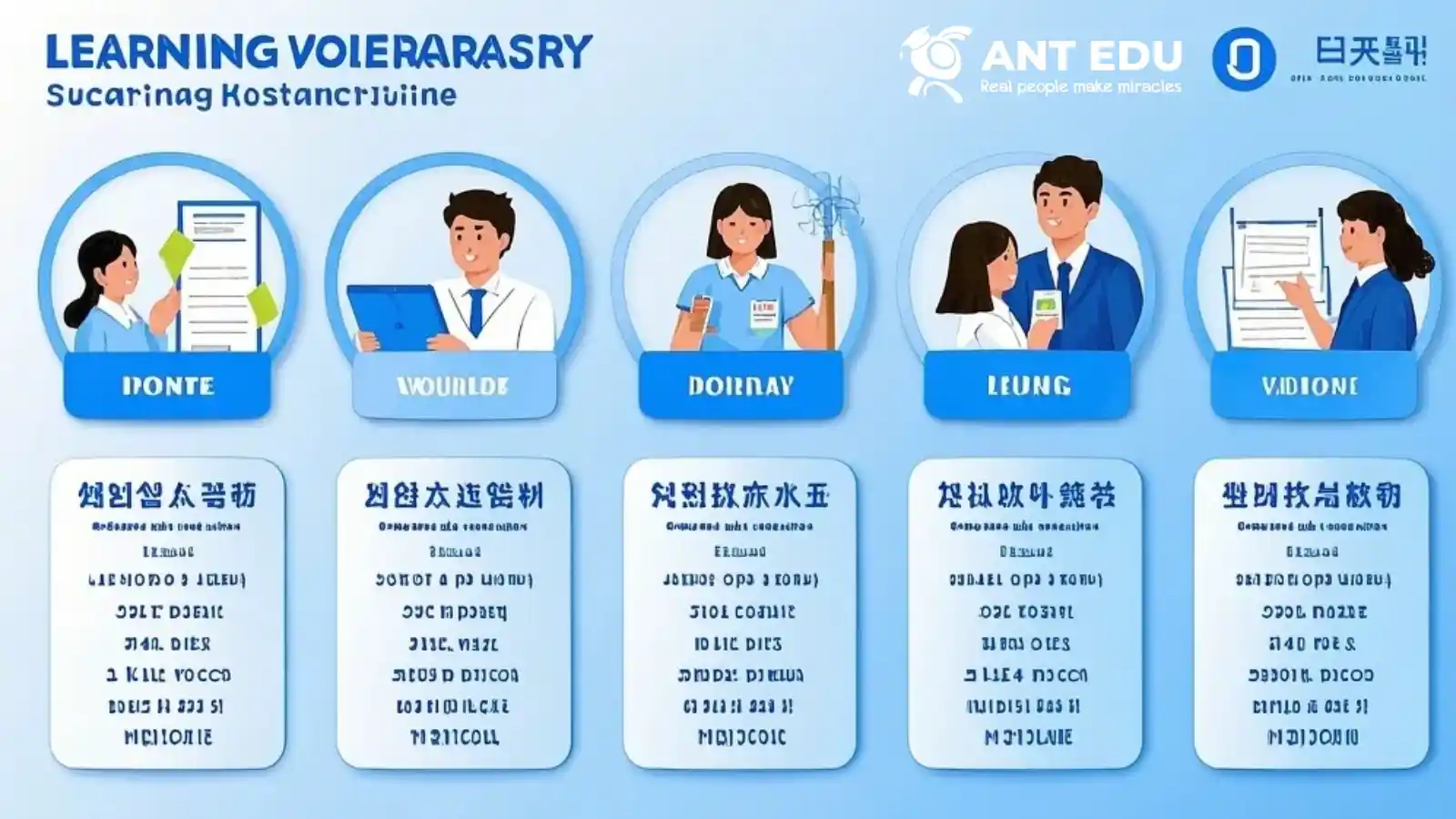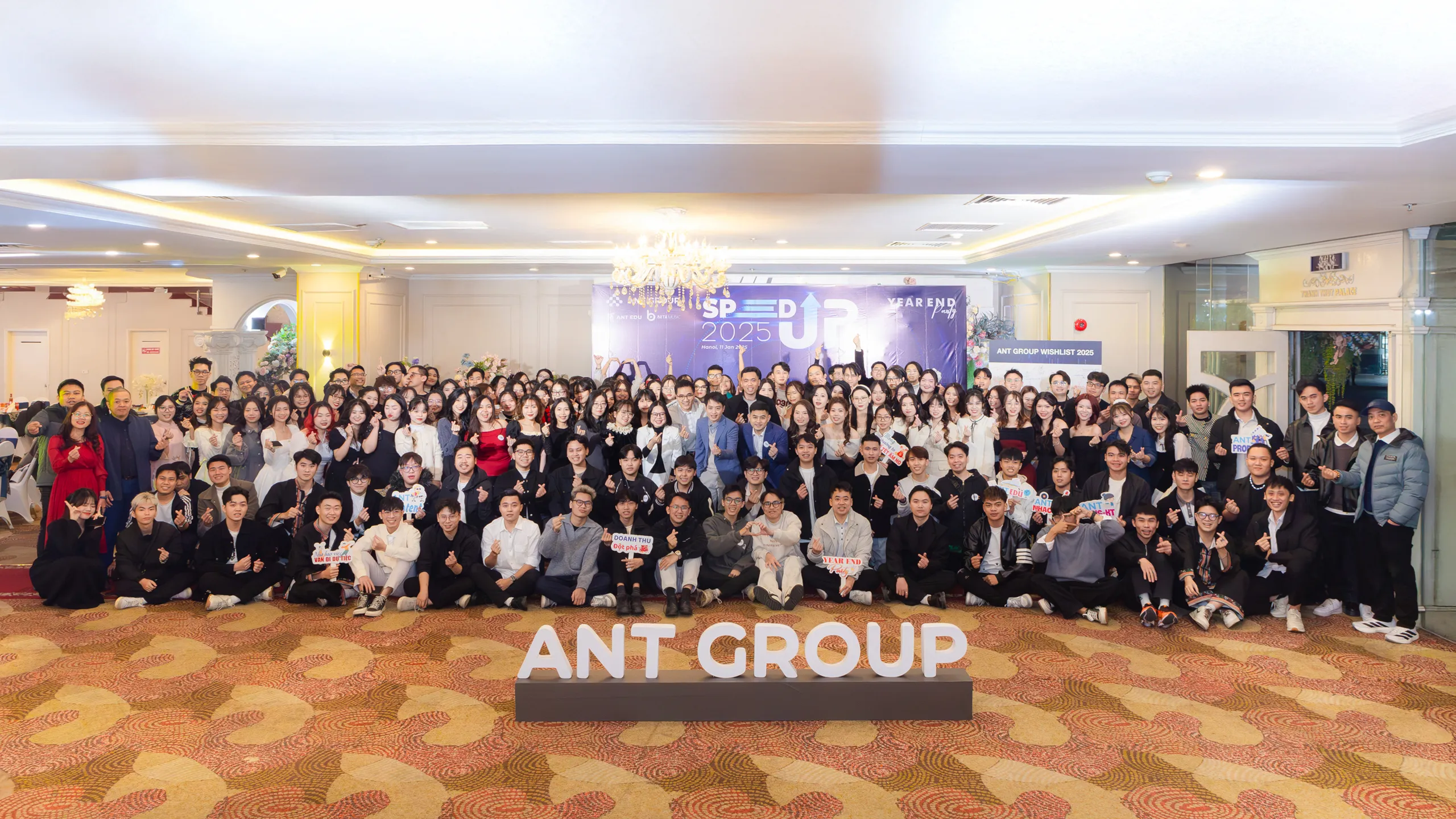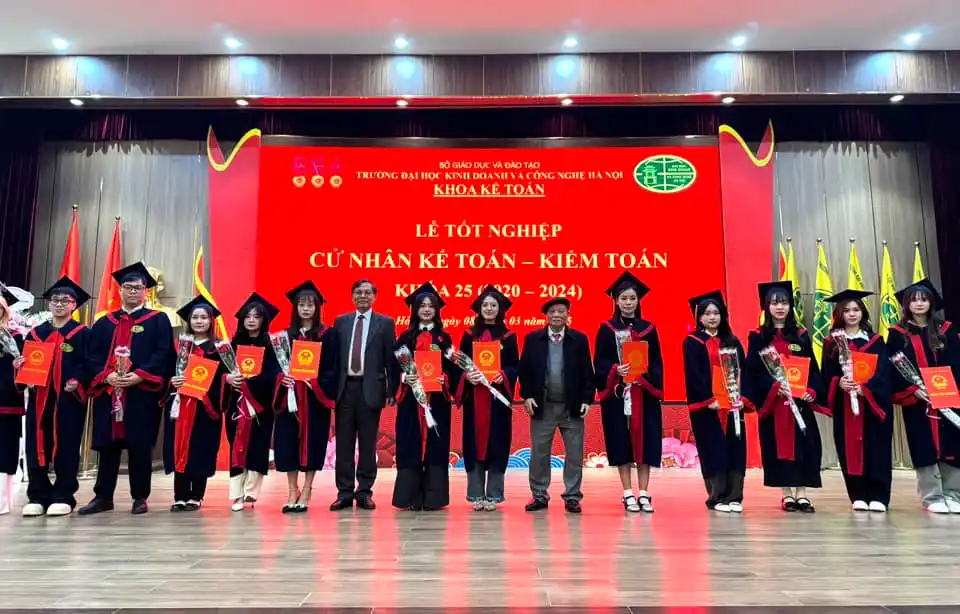The application of Artificial Intelligence (AI) in the field of education is opening up many new opportunities to improve the teaching, learning, and student management processes. Below are some ways that AI can be integrated into the education sector, which are also the goals that ANT EDU is aiming for.
AI can provide career counseling and study planning:
Career counseling system: AI can analyze data on interests, skills, and career orientations to provide suitable career suggestions.
An AI-integrated career counseling system is making significant strides in providing deep support to users in shaping their careers. AI’s ability to analyze data on interests, skills, and career orientations brings great benefits to both individuals and educational organizations.
Firstly, the ability to analyze users’ interests helps identify their passions and personal enthusiasms. AI can track online activities, cultural interests, and other interactions to build a clear picture of what users truly care about. Through this, the system can suggest related professions that users may enjoy and develop in.
Additionally, assessing users’ skills is an important part of the counseling process. The career counseling system can analyze information from various sources, including academic performance, work experiences, and professional certifications. This helps identify the core and specialized skills that users possess, thereby determining the career fields they can develop and effectively contribute to.
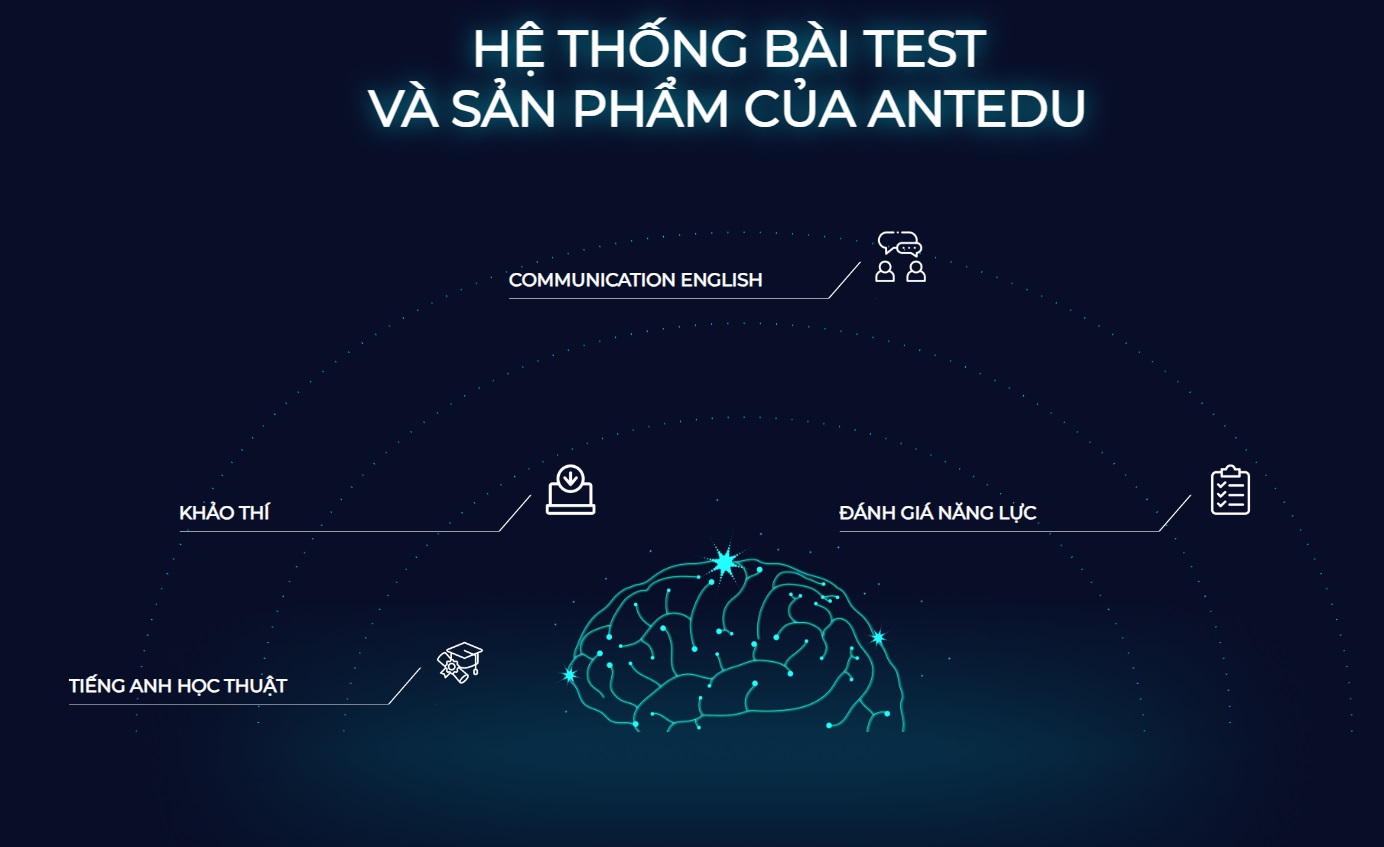
Another important aspect of career counseling systems is the ability to assess career direction. AI can analyze work history, past labor relations, and current job satisfaction levels to suggest suitable career paths. By understanding individual preferences and career goals, the system can provide strategic and sustainable recommendations.
For students and learners, career counseling systems can serve as a vital source of information to help them better understand their career paths. It also serves as a useful tool for professionals looking to transition careers or advance within their current field.
However, to ensure transparency, ethics, and privacy protection, it is necessary to establish information security measures and adhere to data security regulations when deploying AI-integrated career counseling systems..
Developing a personal study plan: An AI system can track learners’ progress and suggest customized study plans based on their abilities and individual goals.
Planning individual study is an important aspect of optimizing the learning experience for every learner, and the integration of Artificial Intelligence (AI) in this process opens up many new opportunities. AI systems are capable of monitoring learners’ progress and using this information to propose personalized study plans, facilitating personal development and achieving educational goals.
Firstly, the ability to track learners’ progress is a crucial part of the system. AI can automatically collect and analyze data from tests, assignments, and other learning activities to assess learners’ performance. Through this, the system gains insight into which skills learners have mastered and which aspects need improvement.
Based on this information, AI systems can propose customized study plans. They can suggest specific subjects or topics for learners to grasp, exercises or projects to develop skills, and appropriate curriculum resources. This helps personalize the learning process, accurately responding to the educational needs and goals of each learner.
The system can also propose flexible study schedules based on personal timetables and abilities. It can optimize study time to ensure the highest efficiency, minimizing conflicts with other activities in learners’ daily lives. Furthermore, if the system detects a significant deviation between actual progress and proposed goals, it can adjust the study plan to ensure learners are not overwhelmed or failing to meet their objectives.
The benefits of integrating AI into individual study planning are not only increased learning efficiency but also the development of learners’ autonomy and self-management. This system is not just a supportive tool but also a source of motivation and guidance in the process of personal and career development.
Artificial intelligence can teach and assess
Automatic assessment system: AI can automatically evaluate tests, exercises, and provide immediate feedback.
The automatic assessment system is an important application of Artificial Intelligence (AI) in the field of education, helping optimize the assessment process and provide instant feedback to learners. The integration of AI in assessing tests and exercises brings many benefits to both teachers and students.
One of the key advantages of the automatic assessment system is speed. AI can process a large volume of tests and exercises in a short amount of time, right after the learners complete them. This not only helps teachers save time but also provides flexibility for students, allowing them to receive feedback immediately upon completion of tasks, helping them understand their learning outcomes better.
The automatic assessment system is capable of analyzing results with high accuracy. AI not only considers the answers but also evaluates how learners approach the problem, the logic of their work, and even creativity in problem-solving. This provides a comprehensive view of learners’ performance, helping them understand their strengths and weaknesses better.
The system providing immediate feedback enhances interaction between teachers and students. Instead of waiting for a long time to receive evaluation, students can immediately recognize and adjust their learning performance. This encourages them to continue to strive and improve, while helping teachers understand the progress of each student and adjust teaching methods if necessary.
Furthermore, integrating the automatic assessment system can minimize inaccuracies and inconsistencies in the evaluation process. Although AI cannot entirely replace the role of teachers, it can support in evaluating a batch of submissions based on pre-defined criteria.
However, attention should be paid to challenges such as ensuring fairness in assessment and handling special cases that AI may not understand. This necessitates the need for close supervision and dialogue between teachers and technology to ensure that the assessment process is transparent and fair.
Personalized learning platform: An AI system that can adjust teaching content based on the abilities, aptitudes, and learning progress of individual learners.
ANT EDU, currently in development at https://ant-edu.ai/, features the following functionalities.
Personalized learning platforms are a groundbreaking trend in education, utilizing Artificial Intelligence (AI) to optimize the learning experience for each student. This system not only provides educational information but also adjusts teaching content based on the abilities, aptitudes, and learning progress of each individual.
One of the main advantages of this platform is its ability to synchronize teaching content with the individual needs of students. AI can monitor and analyze learning performance, identifying aspects that students grasp well and areas that need improvement. Based on this information, teaching content can be adjusted to match the difficulty level and learning pace of each student.
The system also has the ability to identify the aptitudes of students and correspondingly adjust teaching methods. For example, if a student learns best through visuals, the system can provide more visual materials such as images, videos, or charts to optimize their learning process. Conversely, if a student tends to learn primarily through text, the platform can focus on textual materials and lectures.
The ability to track the learning progress of each student helps the system create flexible learning plans. It not only identifies the skills that need development but also suggests appropriate tests and exercises based on the student’s level of understanding and progress. This helps students access knowledge in a systematic and efficient manner.
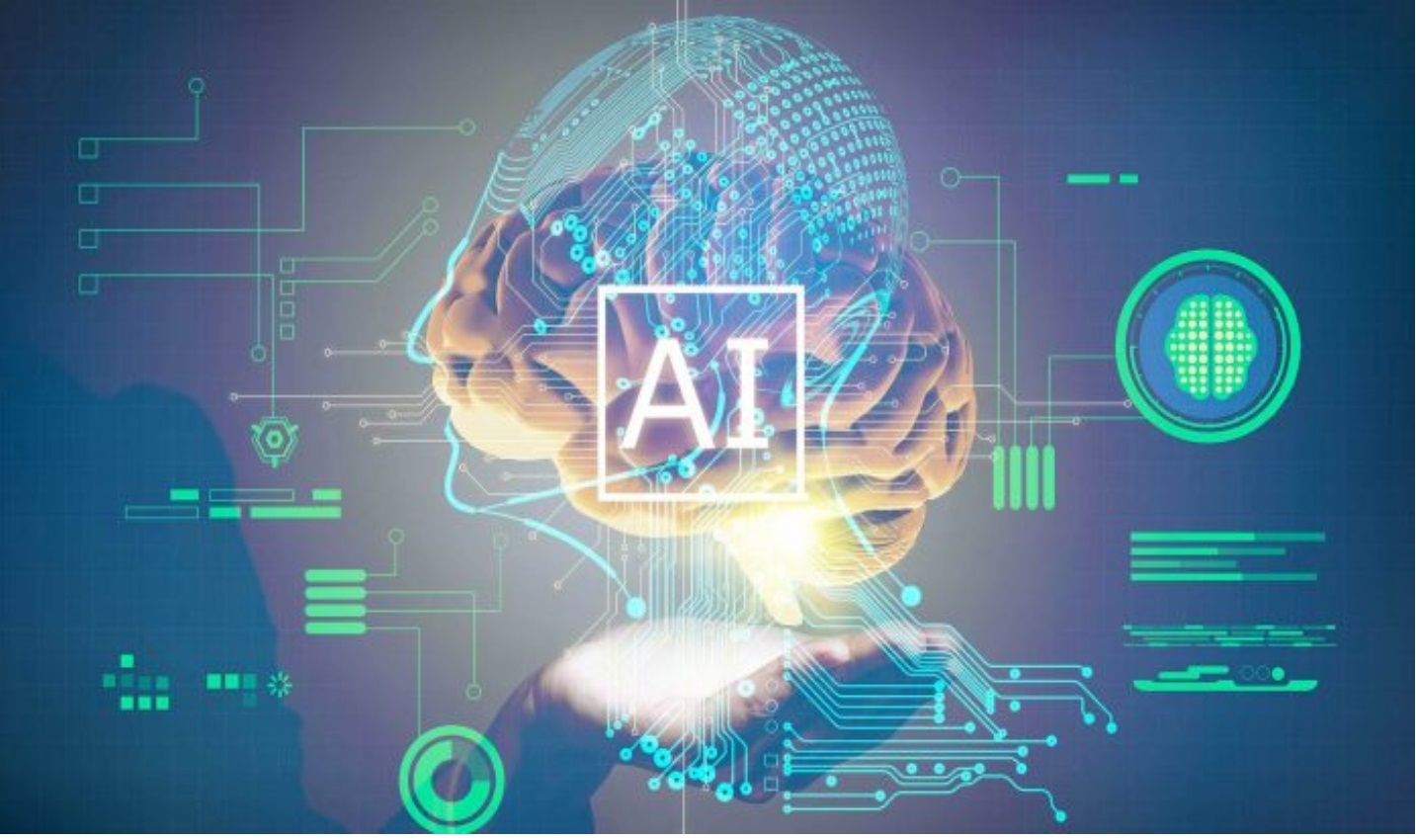
Personalized learning platforms also foster autonomy in learning. Learners can self-manage and plan their studies based on suggestions from the system. Additionally, the system provides feedback immediately after each test or exercise, helping learners better understand their level of success and guiding them on how to improve.
However, attention must be paid to challenges related to security and privacy when using learners’ personal data. Protecting personal information is a top priority to ensure trust and acceptance from learners.
Teacher support: Creating teaching materials: AI can quickly generate teaching materials, lectures, or automated lessons based on educational needs and objectives.
Creating teaching materials through the integration of Artificial Intelligence (AI) not only helps teachers save time but also opens up new opportunities to optimize the teaching process and enrich learning content. This system can quickly generate teaching materials, lectures, or even automated lessons, depending on specific educational needs and objectives.
One of the key advantages of using AI in creating teaching materials is speed. AI can process large amounts of information from various sources and organize them into structured documents in a short time. This allows teachers to focus more on the teaching process and interaction with learners rather than spending time on lesson preparation.
The AI system has the ability to automatically search and select information from a rich source of data, including books, articles, and online resources. This helps create high-quality, updated teaching materials. Moreover, this automation helps teachers save time searching for and processing information.
The system is capable of automatically generating lessons based on specific learner needs. It can customize content based on academic level, learners’ prior knowledge, and even feedback from previous learning experiences. This creates a personalized learning experience, helping each learner absorb knowledge in the most suitable way according to their abilities and learning styles.
Furthermore, AI can create diverse and creative content. The system can categorize and combine information from various sources to create multidimensional and engaging lessons. This helps enhance learners’ attention and interaction during the learning process.
However, while AI can be fast and effective, attention should be paid to factors such as creativity and the ability for personal interaction that humans bring to the teaching process. Although AI can generate content, it cannot completely replace the flexibility and creativity that teachers bring in conveying knowledge. Combining teachers’ creativity with the efficiency of AI can create a multidimensional and rich learning environment.
Classroom management support: AI systems can help manage learner information, grades, and provide statistical data on the learning process.
In today’s era, education is not only about imparting knowledge but also about efficiently managing the classroom. Artificial Intelligence (AI) systems have opened up new opportunities for supporting classroom management, from monitoring learner information to automating assessment and statistics. Below are ways AI systems can help effectively manage classrooms.
-
Learner Information Management
AI systems can efficiently automate the collection and management of learner information. From storing personal information to tracking learning progress and knowledge acquisition, this system helps teachers and school administrators have a comprehensive view of each learner.
-
Automated Assessment
With the power of AI, assessment processes can be automated, reducing the workload for teachers. The system can automatically evaluate tests, exercises, and even learners’ practical skills, allowing teachers to spend more time on personal interaction with learners.
-
Providing Comprehensive Statistical Data
One of the significant advantages of AI systems is their ability to provide comprehensive statistical data on the learning process. Through organizing and analyzing data, teachers and administrators can track progress, identify strengths and weaknesses of the class, and thereby implement improvement measures.
-
Personalized Learning Guidance
AI systems not only help monitor the effectiveness of the class but can also provide personalized learning guidance. Based on data on performance and learning preferences of individual learners, the system can suggest appropriate materials, lectures, or learning methods.
-
Enhancing Communication Between Teachers and Learners
With reduced administrative workload, teachers can enhance communication and interaction with learners. This attention can foster understanding between teachers and learners, creating a positive learning environment.
While AI cannot entirely replace the role of teachers, its support provides opportunities to optimize classroom management, enhance the learning experience, and support learners’ comprehensive development. AI systems have and continue to open a new door for modernization in the field of education.
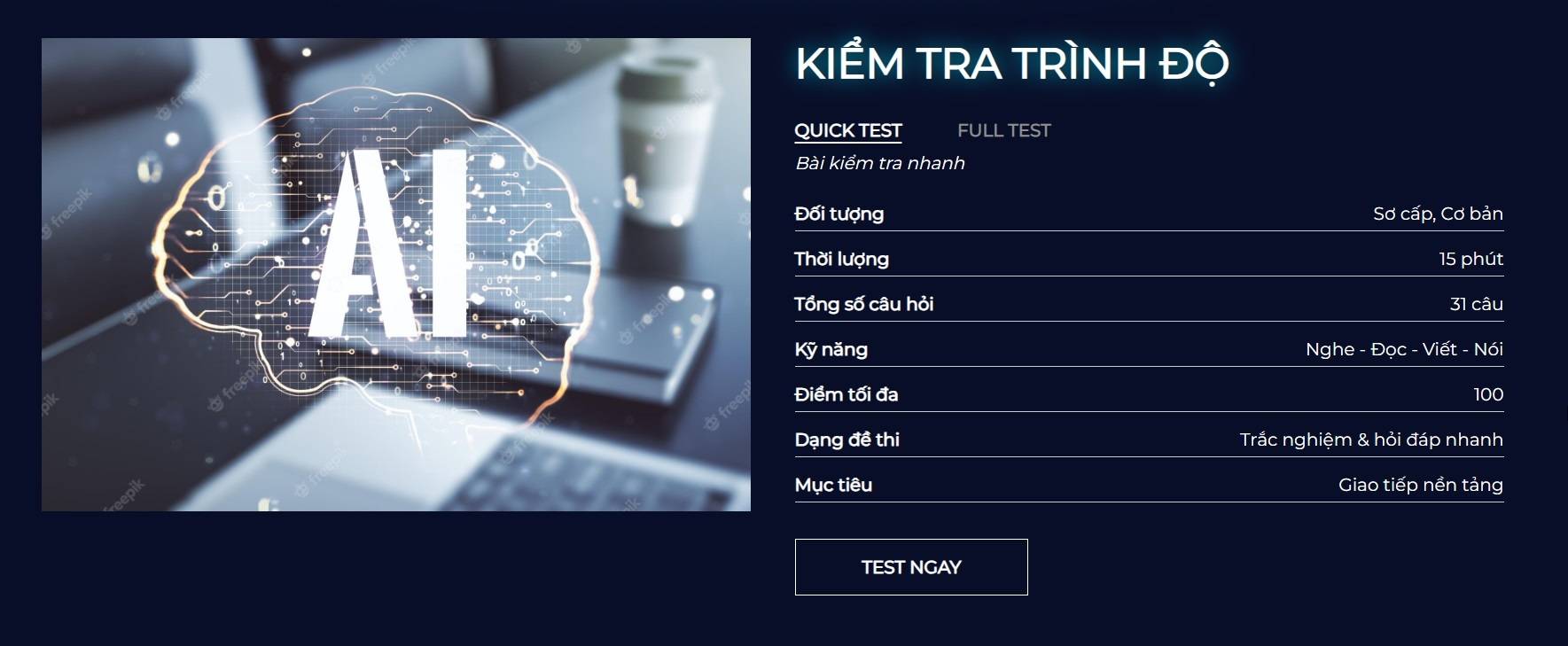
Machine Learning and Data Classification: Educational Guidance: AI systems can analyze large datasets to provide students with guidance on courses, learning content, and skills to develop.
Educational guidance through the integration of Artificial Intelligence (AI) has opened up a new frontier in education, helping to create personalized and effective learning experiences. These systems have the capability to analyze large datasets to advise students on courses, learning content, and skills to develop, while also assisting them in building flexible learning plans.
One of the major advantages of AI-based educational guidance is its deep understanding of students. The system can analyze data on students’ learning history, preferences, and past academic performance to assess their interests and capabilities clearly. Based on this information, guidance can be provided on suitable courses and skills to develop, enabling students to achieve their personal and career goals.
The guidance system can suggest precise courses based on cross-data analysis from various sources. AI can track industry trends, assess the popularity of courses, and reflect the feedback of the learning community. This helps students select high-quality courses that align with their learning objectives.
Furthermore, the system has the ability to recommend specific learning content based on students’ current skills and knowledge. It can suggest lectures, materials, and practical exercises tailored to students’ academic levels, creating a personalized learning experience to maximize their time and effort.
The educational guidance system also supports students in building individual learning plans. Based on students’ goals and study schedules, AI can propose flexible learning pathways to help them manage their time and achieve optimal results. Additionally, if the system detects a significant deviation between actual progress and proposed goals, it can adjust the plan to ensure students are not overwhelmed or unable to meet their objectives.
However, attention must be paid to protecting privacy rights and ensuring transparency in the use of students’ personal data. Information security measures and compliance with data security regulations are extremely important to ensure trust from learners.
Competency Classification and Evaluation: AI can support the assessment process and determine students’ competencies.
In modern education, classifying and evaluating students’ competencies play a crucial role in ensuring personalized and effective learning processes. Artificial Intelligence (AI) has opened up a range of opportunities to support this process, from automating assessment processes to detailing individual competencies.
- Automated Competency Classification
AI has the ability to automatically classify competencies based on diverse data. Through collecting and analyzing data on learning outcomes, assessments, and even extracurricular activities, the system can accurately and quickly determine students’ current competencies.
- Multidimensional Competency Assessment
While traditional assessment processes may focus solely on scores, AI expands the scope by evaluating multidimensional competencies. The system can assess language skills, logical thinking, creativity, and even social skills, providing a comprehensive view of students’ abilities.
- Personal Development Guidance
Using competency data, AI can provide personal development guidance for each student. Based on strengths and weaknesses, the system can suggest activities or courses to optimize individual competency development.
- Continuous and Flexible Evaluation
AI provides the capability for continuous and flexible evaluation, enabling teachers and students to monitor learning progress over time. This not only helps identify development but also facilitates adjustments in teaching and learning methods as needed.
- Identifying Potential Competencies
AI can not only assess current competencies but also predict and identify potential ones. Based on large data and complex algorithms, the system can forecast students’ development potential in the future.
- Ensuring Fairness and Objectivity
AI support ensures fairness and objectivity in the assessment process. By removing subjective factors, the system helps ensure that each student is evaluated based on their actual abilities.
Artificial Intelligence is not only a support tool but also a reliable companion in classifying and evaluating students’ competencies. The flexibility, objectivity, and predictive ability of AI open up new avenues for personalized learning processes and help students develop more comprehensively.
Natural Language and Interaction: Educational Virtual Assistants: AI systems can provide information and answer students’ queries through natural language interaction.
Educational virtual assistants, an excellent application of Artificial Intelligence (AI), are opening up a new direction in education by providing support and detailed information to students through natural language interaction. This system not only serves as a reliable source of information but also as a flexible and convenient educational tool.
One of the main advantages of educational virtual assistants is their ability to answer students’ queries. The system can use natural language interaction to understand and respond to students’ questions naturally, similar to communicating with a real person. This helps students easily understand and clarify learning content, effectively addressing any concerns.
The virtual assistant system can provide detailed and diverse information on various topics. From textbooks and lectures to different learning resources, virtual assistants can automatically search for and access data to help students gain a better understanding of a specific topic. This expands students’ access to knowledge and enables flexible learning according to their needs.
Additionally, educational virtual assistants can customize feedback based on students’ learning performance. It can track learning progress and provide specific suggestions to improve results. This creates a personalized learning experience, helping students maximize their potential and develop most effectively.
Educational virtual assistants not only support learning processes but also enhance students’ interaction and engagement. Having an easily accessible, flexible, and comprehensive source of information helps students feel more confident in grasping knowledge and completing learning tasks.
However, to ensure effectiveness and flexibility, attention should be paid to ethics and information security. Protecting students’ privacy and ensuring that information exchanged through virtual assistants is secure are important factors in building trust and acceptance from the student community.
Automatic Translation: AI systems can support students in understanding and using foreign languages through automatic translation.
Automatic translation, a typical application of Artificial Intelligence (AI), has brought significant benefits in supporting students in understanding and using foreign languages. This system not only facilitates global communication but also opens doors to accessing diverse knowledge from various learning resources worldwide.
One of the significant contributions of automatic translation is helping students understand and interact with educational content in foreign languages. For students with limited knowledge of the target language, automatic translation can convert teaching materials, lectures, and documents from the original language to the target language quickly and effectively.
The system not only supports teaching and learning but also expands access to knowledge. Students can access international learning resources without language barriers. This helps them grasp information from various sources and naturally develop their target language skills.
Additionally, automatic translation creates opportunities for language diversity in education. Students can participate in courses, events, and online forums from around the world without language issues. This not only enhances interaction among global student communities but also facilitates sharing diverse knowledge and experiences.
However, it’s important to note that automatic translation may encounter certain challenges, such as loss of meaning or potential misunderstanding due to the ambiguity of language. This poses requirements for careful consideration when using automatic translation in critical contexts, such as in-depth teaching or analyzing complex texts.
In summary, automatic translation plays a crucial role in connecting and diversifying students’ learning experiences, expanding opportunities for accessing knowledge, and fostering global interaction.
Virtual Reality and Simulation: Learning Simulation: AI can create virtual learning environments, enabling students to apply knowledge to real-life situations and experience real-world scenarios.
Learning simulation is an advanced trend in education, utilizing Artificial Intelligence (AI) to create virtual learning environments, allowing students to apply knowledge to real-life situations and experience real-world scenarios without leaving the classroom. This system brings many benefits to the learning process and the development of students’ skills.
One of the main advantages of learning simulation is the ability to create a realistic virtual environment. AI can build simulation scenarios based on the knowledge and skills students need to learn, creating hypothetical situations and virtual environments that mimic reality. This helps students experience situations they may encounter in real life without actual risks.
The learning simulation system can provide hands-on experience in various fields. From medicine to engineering and project management, simulations can simulate multiple contexts and factors for students to apply their knowledge in real-world environments. This helps them develop practical skills and confidence when facing challenges in their careers.
Learning simulation also creates opportunities for active learning and interaction. Students can engage in simulation scenarios, make decisions, and even test their solutions in a safe and supportive environment. This helps them develop decision-making skills and problem-solving abilities with confidence.
Additionally, learning simulations can be customized based on students’ skill levels and knowledge. The system can adjust the difficulty of tasks, provide detailed feedback, and allow for repetition so that students can improve their performance over time.
However, it’s important to note that simulation cannot entirely replace the application of knowledge in real life. This poses challenges for the authenticity and accuracy of simulation environments. Maintaining the flexibility and interactivity of simulations is crucial to ensure their effectiveness in the learning process.
Integrating AI into education can optimize learning experiences, enhance teaching quality, and support student management processes. However, attention should be paid to issues related to privacy, ethics, and ensuring that the technology is used transparently and fairly.


